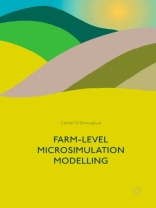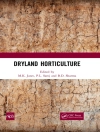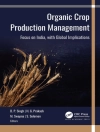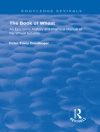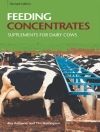This book, which is the first to be published in the emerging field of farm-level microsimulation, highlights the different methodological components of microsimulation modelling: hypothetical, static, dynamic, behavioural, spatial and macro–micro. The author applies various microsimulation-based methodological tools to farms in a consistent manner and, supported by a set of Stata codes, undertakes analysis of a wide range of farming systems from OECD countries. To these case studies, O’Donoghue incorporates farming policies such as CAP income support payments, agri-environmental schemes, forestry planting incentives and biomass incentives – in doing so, he illuminates the merits of microsimulation in this environment.
Mục lục
Chapter 1. Introduction.- Chapter 2. Farm-Level Microsimulation Modelling: An Updated Survey.- Chapter 3. Static Farm Microsimulation Model: Price Impact.- Chapter 4. Hypothetical Microsimulation Modelling: Farm Taxation.- Chapter 5. Farm Subsidy Microsimulation Modelling.- Chapter 6. Spatial Microsimulation of Farm Income.- Chapter 7. Farm-Level Income Generation Microsimulation Model.- Chapter 8. Behavioural Microsimulation Modelling: Agri-Environmental Schemes.- Chapter 9. Inter-Temporal Microsimulation Model: Forestry Planting Decisions.- Chapter 10. Spatial Microsimulation Model for Environmental Policy.- Chapter 11. Farm Household Microsimulation Modelling: Viability.
Giới thiệu về tác giả
Cathal O’Donoghue is Dean of Arts and Social Sciences and Professor of Public and Social Policy at the National University of Ireland, Galway, Republic of Ireland. Prior to this, he was Head of Teagasc’s (Irelands Agriculture and Food Development Authority) Rural Economy and Development Programme. He was CEO of the Irish Government’s Commission for the Economic Development of Rural Areas from 2012 to 2014, and President of the International Microsimulation Association from 2011 to 2015.
